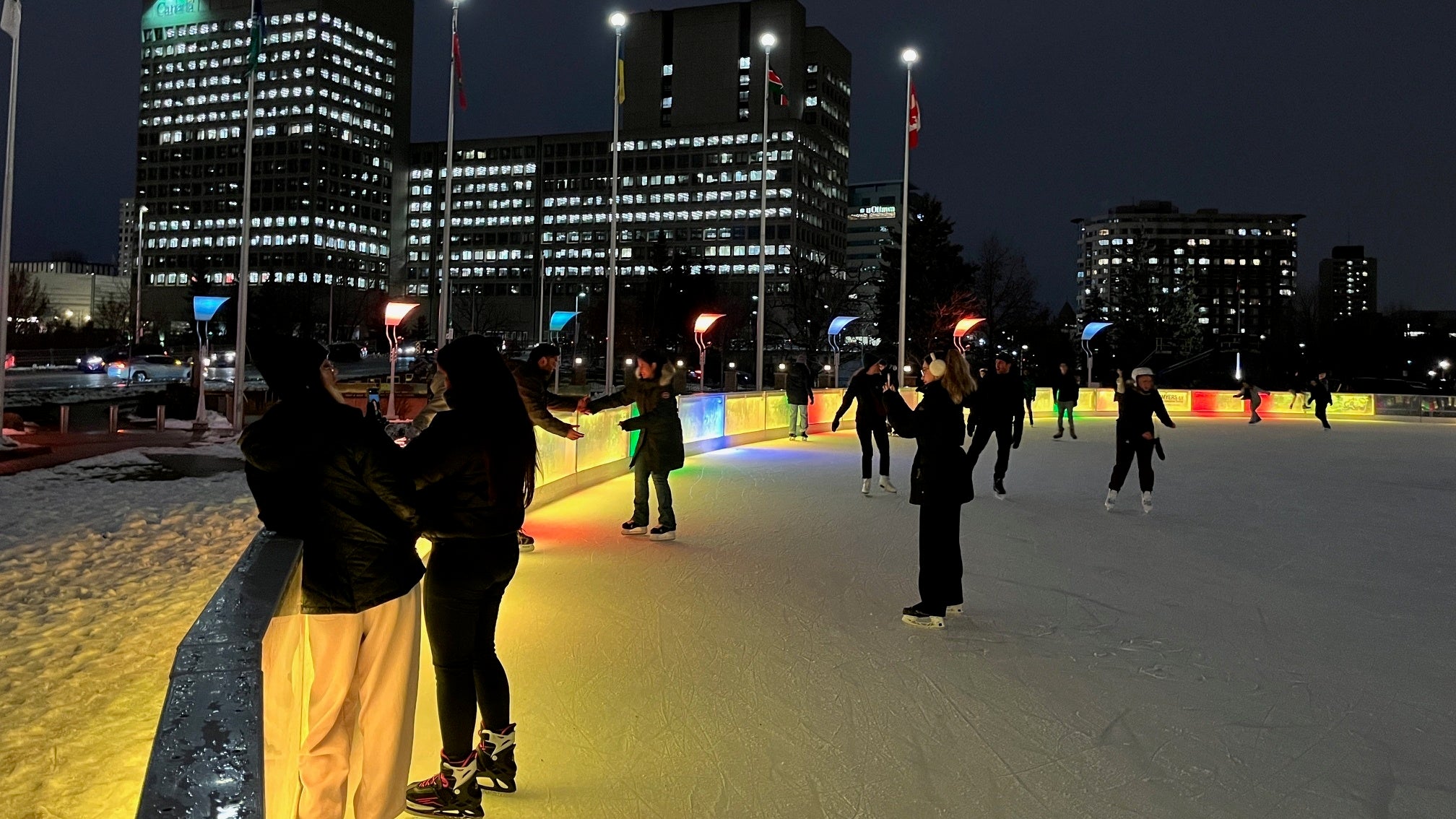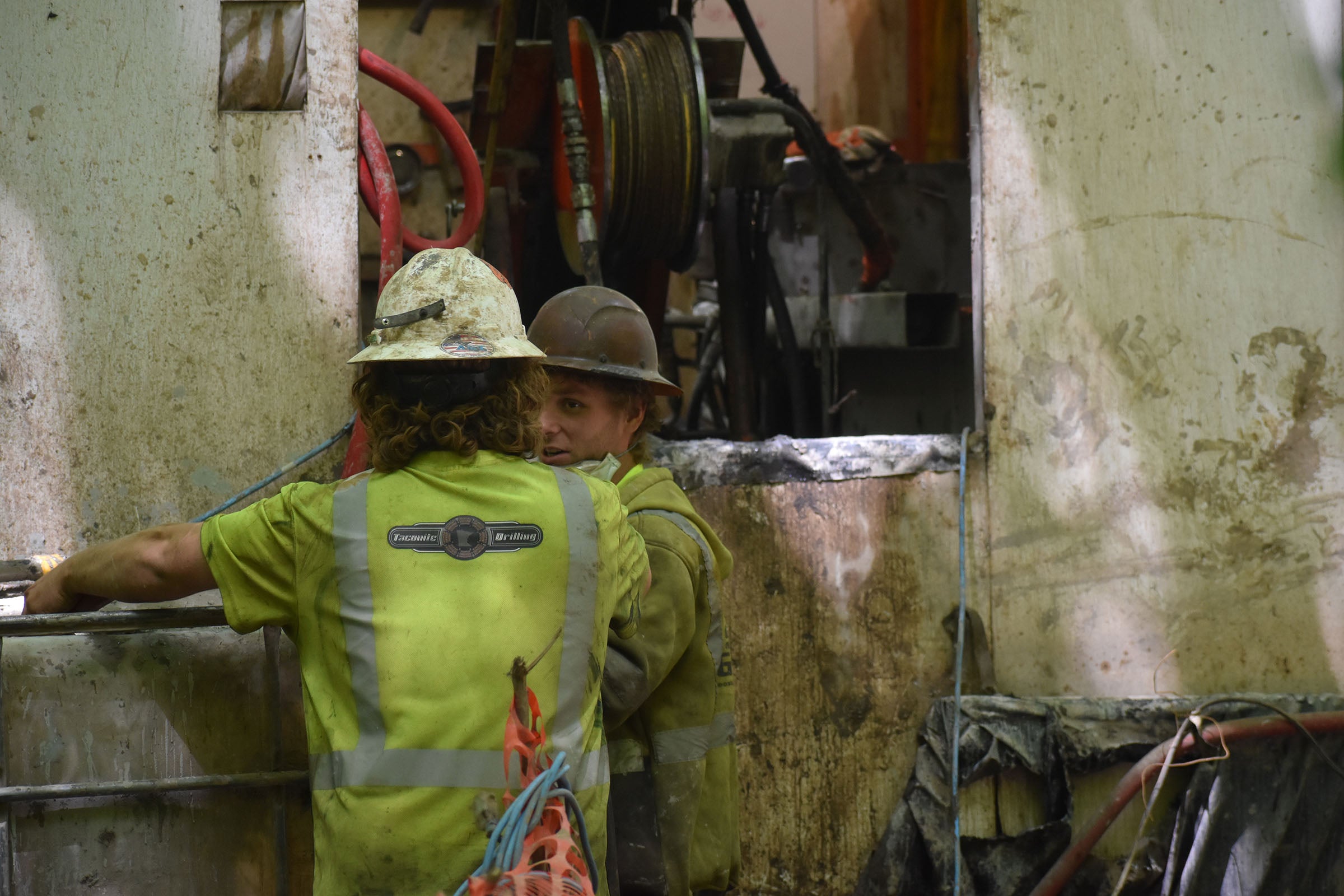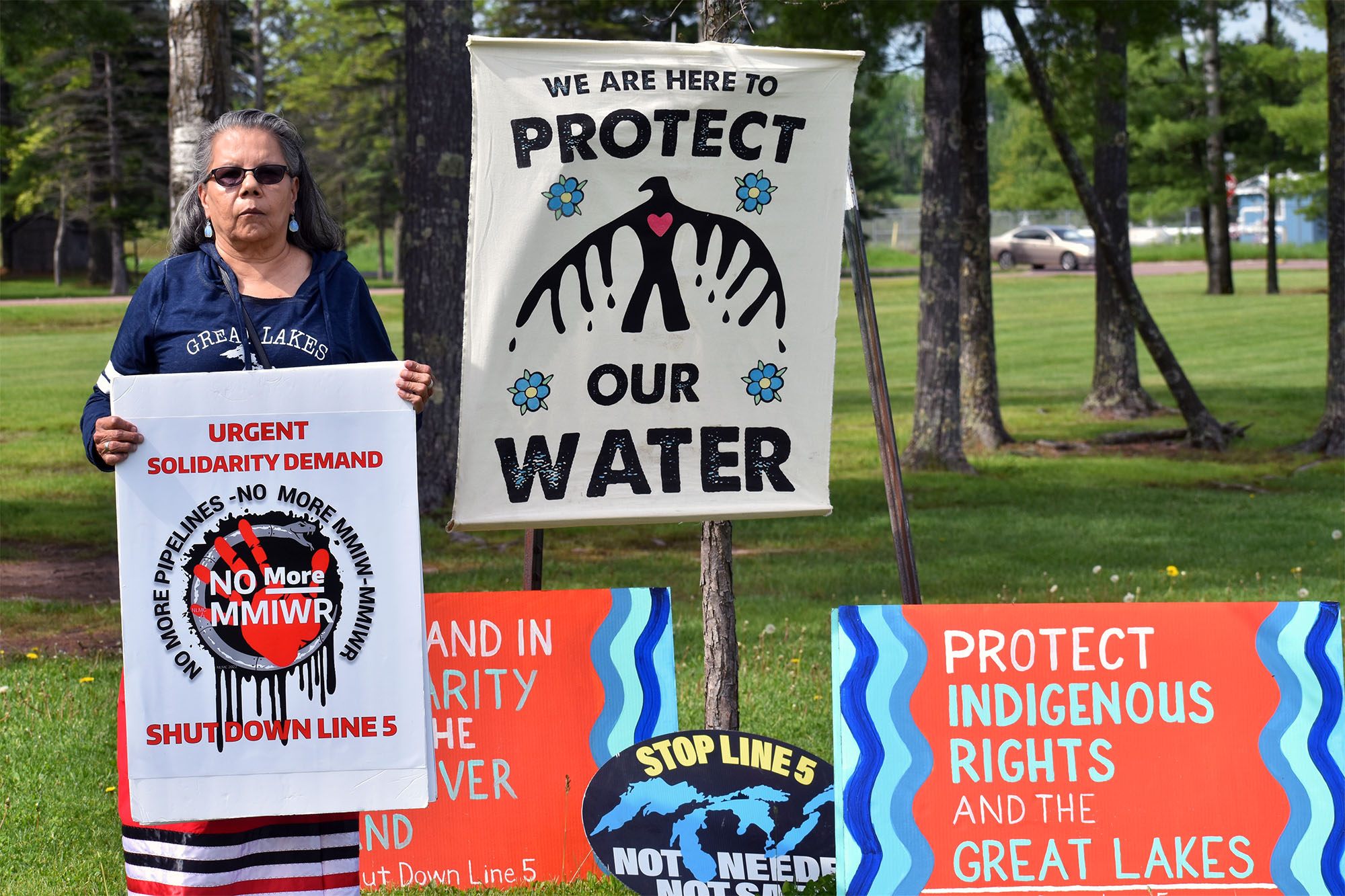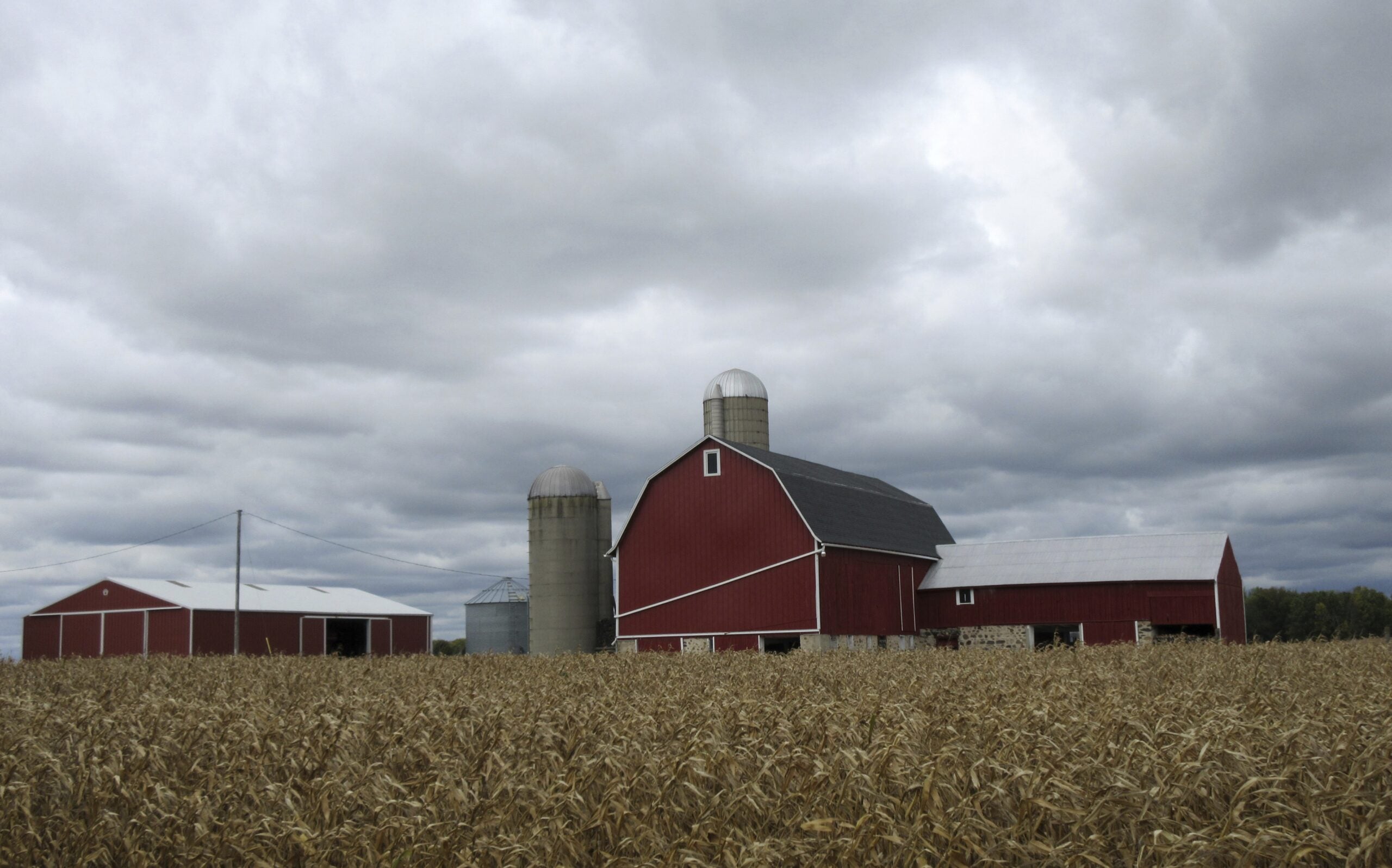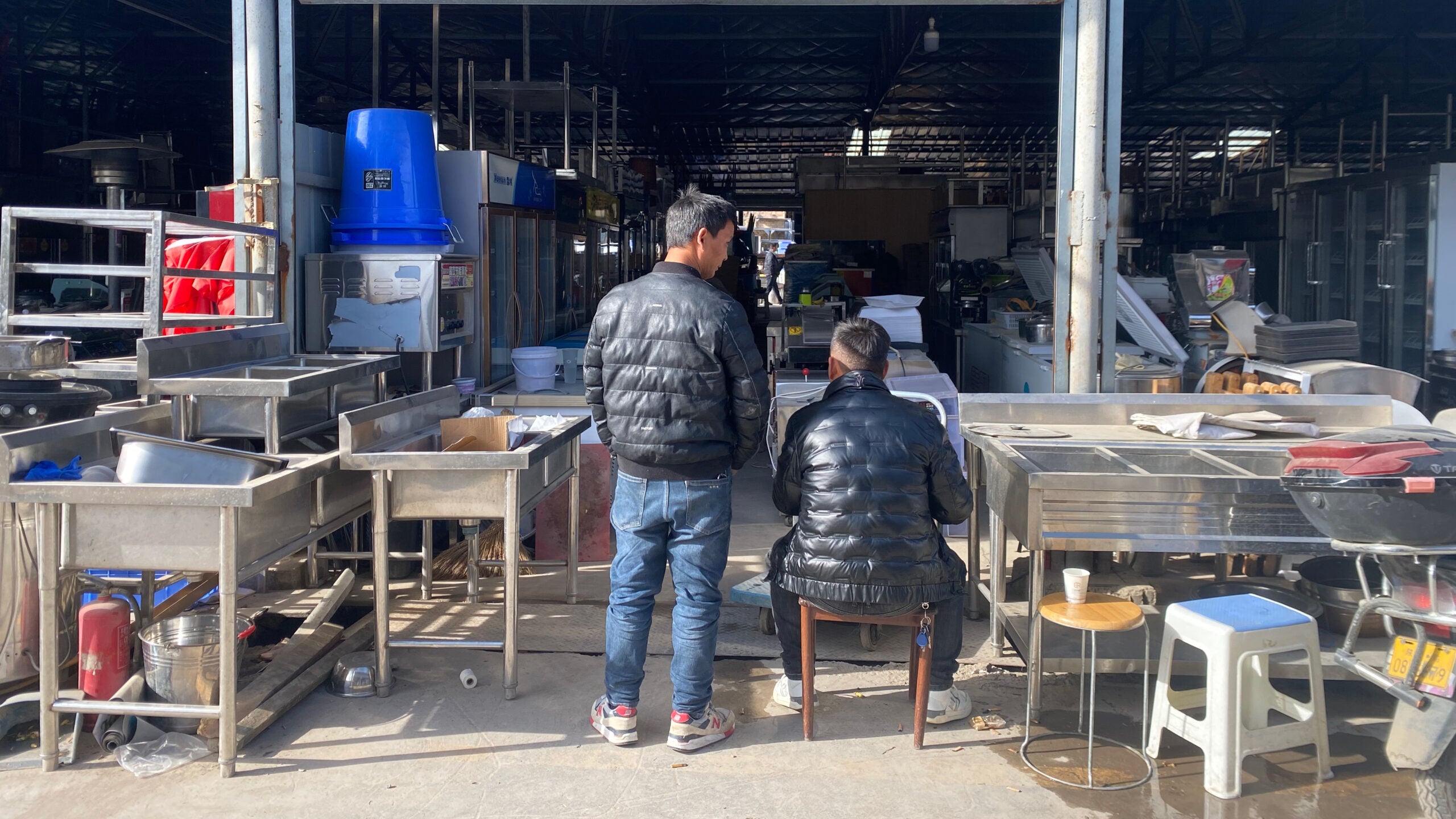OTTAWA — On a frigid December evening, ice skaters, bundled up against the cold, zip around an outdoor rink in front of Ottawa’s City Hall. Trees around the rink sparkle with Christmas lights, their bright colors bounce off snow covering the lawn and sidewalks. It is a quintessential Canadian scene, the type that for years shaped how many Canadians saw their place in the world.
Like many Canadians, Jonathan Berkshire Miller grew up with a rosy view of the country’s international role, such as peacekeeping missions.
“Nobody was out there to harm Canadians. And Canadians could be all friends to all people on all issues,” says Miller, the director of foreign affairs, national defense and national security at the Macdonald-Laurier Institute, a public policy think tank in Ottawa.
News with a little more humanity
WPR’s “Wisconsin Today” newsletter keeps you connected to the state you love without feeling overwhelmed. No paywall. No agenda. No corporate filter.
But that benign view has been sorely shaken recently.
“We’re starting to wake up to some of these very hard realities, that many states around the world have interests adversarial to Canada,” he says.
Tensions with India have risen over the killing of a Canadian Sikh activist
Even though Canada enjoys a reputation of being a friendly country, over the past year it has found itself in spats with powerful nations — notably, China and India. Ottawa accuses both of meddling in everything from politics to domestic security, which is forcing Canada to reexamine its policies on national security.
Perhaps the starkest example of that came in mid-September, when Prime Minister Justin Trudeau stood before Parliament and announced there was “credible evidence” that agents of the Indian government were involved in the June killing of Hardeep Singh Nijjar, a Canadian citizen of Indian descent who was shot dead by masked gunmen outside a Sikh temple in Surrey, British Columbia.
“Any involvement of a foreign government in the killing of a Canadian citizen on Canadian soil is an unacceptable violation of our sovereignty,” Trudeau told the House of Commons. He said he had personally and directly brought up the allegations about Nijjar’s killing when he met with Indian Prime Minister Narendra Modi at the G20 summit in New Delhi roughly a week earlier.
India, which had formally designated Nijjar as a terrorist, denied the accusation, saying it was “absurd.” Nijjar was an activist promoting the creation of an independent homeland, known as Khalistan, for India’s Sikhs.
Ottawa immediately expelled one Indian diplomat. New Delhi retaliated in kind. Canada then withdrew 41 of its diplomats and their dependents, after India threatened to revoke their diplomatic immunity. In a statement, Canada’s Minister of Foreign Affairs Mélanie Joly and Minister of Immigration Marc Miller called India’s move “unreasonable and escalatory” and contrary to international law.
The news of an extrajudicial killing stunned many Canadians, but the country’s Sikh community was not as surprised. Canada is home to the world’s largest Sikh community outside India — about 770,000, according to the 2021 census — and New Delhi claims many are extremists.
“The history of India’s targeting of Sikhs in Canada … it’s something that Sikhs have lived with for many, many years,” says Balpreet Singh, legal counsel and spokesperson for the World Sikh Organization of Canada. He says Canadian law enforcement did not take those threats seriously until Nijjar’s death.
“People in the mainstream are finally aware that India is engaging in very nefarious activities, targeting Sikhs,” he says.
In November, the U.S. also unveiled a plot directed by an Indian government official to kill a Sikh separatist in New York — part of a larger plot to carry out multiple assassinations in both Canada and the U.S., prosecutors said.
According to the unsealed indictment, an unidentified Indian government employee with links to Indian intelligence directed Indian national Nikhil Gupta to assassinate Gurpatwant Singh Pannun, a dual U.S. and Canadian citizen. Prosecutors said Gupta paid a hitman $100,000 in cash to carry out the assassination, which was foiled.
In his first public comments about the U.S. assassination plot, Indian Prime Minister Narendra Modi told the Financial Times, “If a citizen of ours has done anything good or bad, we are ready to look into it. Our commitment is to the rule of law,” the paper reported last week.
Meddling by China is also a major concern
Allegations of foreign interference in Canada aren’t limited to India. As early as 2010, the Canadian Security Intelligence Service (CSIS), the country’s main intelligence agency, warned about China meddling in its affairs. The warning was repeated in June.
There are significant ethnic Chinese communities in Toronto and on the country’s west coast. Dan Stanton, a former intelligence officer with CSIS, says Beijing has slowly been penetrating those communities, trying to promote its interests.
“The threat of foreign interference is so nuanced that it’s easy to look at it and say, what’s the big deal?” says Stanton, now director of national security at University of Ottawa’s Professional Development Institute. “Incrementally, you see a very comprehensive approach … like they’re hitting all the sectors — media, political, government and diaspora communities, to facilitate the promotion of their policies.”
Colin Robertson, a former diplomat and fellow at the Canadian Global Affairs Institute, a think tank in Ottawa, says for years, Canada was complacent about the threats facing it, largely because of its geographic position.
“There was some sense that … we were simply sleeping through this because we’ve got the protection of the American security umbrella and we’ve got three oceans and we don’t really have to worry about this kind of thing,” he says.
Canada is now having to grapple with how to stand up to powerful, authoritarian nations wanting to impose their will — without giving up its values, such as protecting human rights.
“If a large power wants to make an example of a middle power, we are almost a sitting duck as the 11th or 12th largest economy in the world,” says Sen. Peter Boehm, chairman of the Canadian Senate’s foreign affairs committee. “We would also be seen as a bit of a surrogate for the U.S. If a country wants to send a message to the U.S., blame Canada.”
There have been a number of other incidents that have shaken Canada from its security complacency. In 2018, China arrested two Canadian citizens, Michael Spavor and Michael Kovrig, in a move broadly seen as retaliation for Canada detaining Meng Wanzhou, a senior executive of the Chinese telecommunications giant Hauwei, at the behest of the Trump administration. The two Canadian men were held for more than three years.
Ottawa’s relationship with Beijing soured further after leaked Canadian intelligence reports showed China trying to pressure members of Parliament and skew political campaigns.
Michael Chong, a member of Parliament, says China targeted him in the lead-up to the 2021 federal election. Chong had spoken out against Beijing’s treatment of minority Uyghurs. Intelligence reports leaked to the Globe and Mail newspaper indicated that Chong was targeted as part of a smear campaign by China, and that his relatives in Hong Kong were also targeted.
Several other ethnic Chinese politicians in Canada were affected by Beijing’s interference. Kenny Chiu, elected to Parliament in 2019 representing the Steveston-Richmond East constituency in British Columbia, was widely expected to be reelected in 2021. But he started calling for a registry for foreign agents as a way to curb outside interference. Speaking from his home near Richmond before the 2021 election, he criticized a Chinese crackdown in Hong Kong. Shortly after, his political fortunes changed.
“When I went door-knocking, people were opening the door and they heard my name and they just basically shut in my face,” he says. “Some people who used to be supporters to the point of willing to plant a lawn sign at their property, they wouldn’t even want to talk to me. That was just within a very short 22 months’ period.”
Chiu says he also faced attacks on social media. He didn’t know why his popularity had nosedived until CSIS reached out to him.
“In October, Canadian Security Intelligence Services had a debrief finally with me, confirming with me that I was under the disinformation campaign attack during the last election,” he says.
Canada is starting to take steps to try and combat foreign interference
The Canadian government is now taking action, and has announced the creation of a new National Security Council. The parliament has launched an inquiry into foreign interference in national elections in 2019 and 2021, with a final report expected by the end of 2024.
Stephanie Carvin, a former CSIS intelligence officer now teaching at Carleton University, says Canada has underfunded its national security. She says it is hoped that the parliamentary inquiry will lead to more robust, enforceable national security policies.
“The fact is that our laws are very much out of date,” she says. “National security tends to be neglected by politicians who would rather provide things like dental plans, like daycare.”
Carvin says combating foreign interference will require coordination among Canada and its allies, including the U.S., Australia and Britain.
Until then, there’s only so much Canada can do, compared to, say, the U.S., says Berkshire Miller of the Macdonald-Laurier Institute.
“The United States still has that heft where it can push back on certain issues. I think increasingly Canada is seen as a very, very soft and easy target, even though we have strong affiliations and alliances of the United States,” he says.
And that could be tested more in the future, as economic and geopolitical power shifts more toward countries like India and China.
9(MDAyMjQ1NTA4MDEyMjU5MTk3OTdlZmMzMQ004))
© Copyright 2026 by NPR. To see more, visit https://www.npr.org.9(MDAyMjQ1NTA4MDEyMjU5MTk3OTdlZmMzMQ004))

